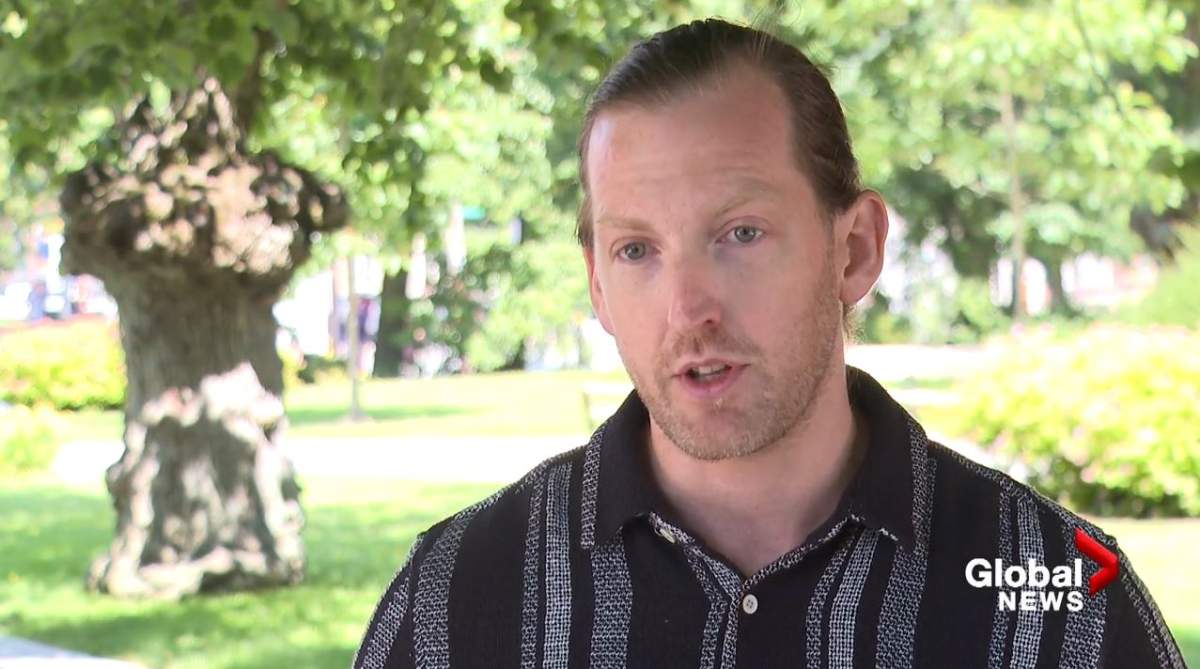When it comes to Canada’s workforce, it’s not always an equal playing field, but one local social media marking software company is doing its part to level it.

Making sure all employees feel at home at Dash Hudson is a priority, said Jill Hennigar, the company’s vice president of operations.
“I think right from day one they start to really understand that they can bring their whole selves to work,” she said.
“We have such an engaging, welcoming community where I think people get to see themselves through every department, no matter the level.”
It’s a corporate culture that has attracted a diverse workforce. Ten per cent of the company’s 235 employees — and eight per cent of its leadership team — identify as part of the LGBTQ2 community.
Hennigar said to make sure Dash Hudson continues to be a welcoming place, it decided this year to partner with Pride at Work Canada.
“It was really important for us to show up in this area, and that means partnering with the best — people that can help us with expertise and resources, training — those kinds of things,” Hennigar said.
Dash Hudson is one of more than 250 Canadian companies working with Pride and Work Canada, a consulting firm that helps businesses build diversity, equity and inclusion strategies.

Get breaking National news
It’s especially important work, said Pride at Work Canada’s executive director Colin Druhan, as more than 50 per cent of LGBTQ2 employees feel the need to hide their identity at work.
“Folks who face multiple barriers or have a lot of history facing racism in job-finding processes, they might actually have to choose to not disclose their orientation or their gender identity because the racism they face is significant enough to not want to deal with another form of discrimination in those processes,” Druhan said.
“So it’s not even just about the access to jobs, it’s folks who are in jobs and they don’t really get the same treatment as their colleagues.”
He also points to new research by Social Research and Demonstration Corp. that shows there is a pay hierarchy among Canadian workers.
“Straight men in Canada, on average, make about $56,000 a year. Bisexual women make less than half at $26,000 a year,” he said.
“We actually see even greater disparities when we look at folks who are trans, agender, non-binary, otherwise gender diverse. They experience very specific and significant challenges entering the labour market.”
He said transgender people are at the bottom of the hierarchy, with the majority making less than $30,000 per year.
“So we’ve got some work to do to try and close those gaps and make sure folks from queer and trans communities are able to access jobs and advance at the same rate as their colleagues,” Druhan said.
So what’s the path forward?
Druhan said it comes down to employers going beyond performative acts of inclusion. He said while including pronouns in email signatures, displaying rainbow flags and walking in the Pride parade are all important, businesses need to do more.
“Those are really visible ways that folks can express solidarity with queer and trans communities, but we actually have to do some of those things that are invisible,” Druhan said.
Examples include promoting health benefits, group benefits, that support all types of families — including gender-affirming care for both employees and dependents, Druhan said. “And we also want to see workplace programs that don’t just teach straight, cis-gendered people about queer and trans people. We actually want to see things that are for queer and trans people.”
This is work that Hennigar said is at the forefront of Dash Hudson’s mandate, as the company embarks on its new, five-year diversity, equity and inclusion strategy. The objective, she said, is to have more representation from all equity-deserving groups across all levels of the company.
“And supporting the 2SLGBTQ+ community was certainly a priority for us and education is at the forefront of it all. We centre all of our work around education and learning first,” she said.









Comments